Do you have a question about the Siemens LOGO! CMR2040 and is the answer not in the manual?
Details the scope and validity of the manual's content for specific LOGO! products.
Defines key terms and abbreviations used throughout the document for clarity.
Outlines the manual's objective: to support users in configuration, installation, commissioning, and operation.
Highlights new functions and features introduced in the latest firmware version.
Explains how to navigate between different sections of the manual using cross-references.
Describes the basic connection of the LOGO! BM to wireless networks and GPS systems.
Advises users to read license conditions for open source software before product use.
Provides essential guidance on industrial security concepts for protecting plants and networks.
Details the basic communication capabilities including mobile wireless, GPS, and HTTPS access.
Explains advanced features like WBM, OpenVPN, SMS/email messaging, and process image access.
Lists essential prerequisites for operating the device, including SIM card and data contracts.
Provides practical examples of how to configure and use the device in various scenarios.
Illustrates the device's layout and identifies its key physical components and connectors.
Explains the meaning of each LED indicator for device status and operation.
Describes the device's interfaces, including power supply and network connections.
Details the functions of the SET button based on press duration (restart, shutdown, factory reset).
Explains the purpose and use of the SIM card slot and the optional SD card slot.
Covers safety notices, overvoltage protection, and usage in hazardous areas (ATEX, UL HazLoc).
Provides instructions for mounting the device on a DIN rail and wall mounting procedures.
Details the connection procedures for LAN interface, I/O, antenna, and power supply.
Guides users through the steps required to commission the device, including SIM card and antenna setup.
Introduces read/write access to CMR/BM via SMS and monitoring functions for LOGO! BM.
Explains how to read/write values in BM variables memory using SMS and data types involved.
Provides essential security advice for preventing unauthorized access and ensuring system integrity.
Describes the Web-based Management interface, navigation, symbols, and configuration elements.
Specifies allowed characters and length limits for various configuration parameters.
Guides users on setting up a web browser connection to the CMR for configuration purposes.
Explains the overview tab on the start page and how to navigate to relevant configuration pages.
Covers system settings including general module configuration, device info, SD card, and system time.
Details diagnostic options, including LEDs, WBM diagnostics, and the diagnostics buffer.
Covers firmware updates, configuration management, operating status, and factory resets.
Describes the configuration and function of the LAN interface X1P1 for local connections.
Details Wide Area Network configuration, including mobile wireless, SMS, email, and DynDNS settings.
Explains security features like OpenVPN, HTTPS, certificates, and user/group management.
Covers the creation and management of users and recipient groups for access control.
Guides users on configuring monitoring functions, signals, events, actions, and assignments.
Outlines available diagnostics methods: LEDs, WBM, and diagnostics buffer messages.
Explains how to use SMS commands for diagnostics and the structure of response messages.
Provides a troubleshooting guide linking common disruptions to their potential causes and solutions.
Describes the process of downloading and loading new firmware versions onto the device.
Details the effects of a factory reset and the methods for performing it (WBM, SET button).
Lists the specific article numbers for LOGO! CMR2020 and LOGO! CMR2040.
Details the specifications for the Ethernet interface, including quantity, design, properties, and speed.
Specifies the maximum allowed lengths for Ethernet connection cables under various conditions.
Provides information on power supply requirements, tolerance, design, and current consumption.
Details the specifications for the device's digital inputs, including quantity, design, and voltage range.
Details the specifications for the device's digital outputs, including quantity, design, and load capability.
Covers specifications for the mobile wireless interface, antenna connector, and frequency bands.
Lists performance characteristics and maximum transmission speeds for different wireless standards.
Details specifications for the GPS interface, including quantity, design, and nominal impedance.
Specifies power supply voltage, current consumption, and design for the GPS interface.
Outlines the operating temperature and humidity ranges for the device.
Provides details on the device's physical design, dimensions, weight, and materials.
Notes that issued approvals are marked on the device's type plate.
Confirms product compliance with relevant EC directives and harmonized European standards.
Lists product-relevant harmonized standards according to EU directives like ATEX and IECEx.
Confirms product compliance with explosion protection requirements according to IECEx.
Confirms product compliance with the EC directive for equipment in potentially explosive atmospheres.
States compliance with the EC directive for radio equipment regarding health, safety, and EMC.
Describes available antennas for GSM, UMTS, and LTE, including their specifications and part numbers.
Lists available antenna connecting cables with their lengths, part numbers, and connector types.
Details cabinet feedthrough components used for panel mounting and cable connections.
Describes lightning protectors and overvoltage protection devices for antenna connections.
Specifies compatible SD card formats and specifications for storing configuration files.
Explains how the CMR processes incoming SMS, checks sender numbers, and handles keywords/passwords.
Details how to configure passwords for SMS messages to secure write access to the CMR.
Describes how the CMR replies to SMS messages, including acknowledgments and preventing loops.
Lists common SMS error messages, their possible causes, and troubleshooting steps.
Provides a quick reference for SMS commands and the expected response format.
Details various SMS commands for diagnostics, GPS, process image, BM status, and configuration.
Explains the structure of SMS replies for process image queries, including value blocks.
Guides users on locating Siemens product documentation through catalogs and online support.
Directs users to find article numbers and product catalogs via the Siemens Industry Mall.
Provides links to SIMATIC NET manuals available on the Siemens Industry Online Support portal.

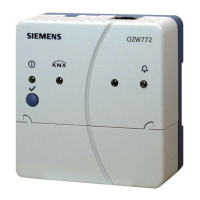




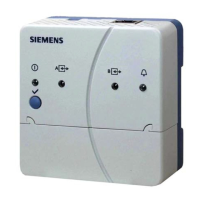
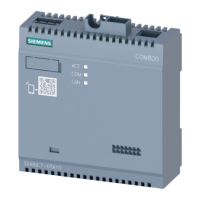
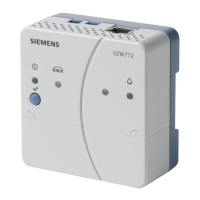
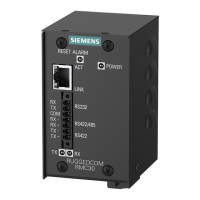
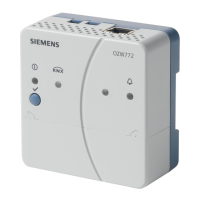
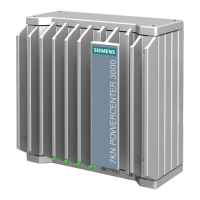
